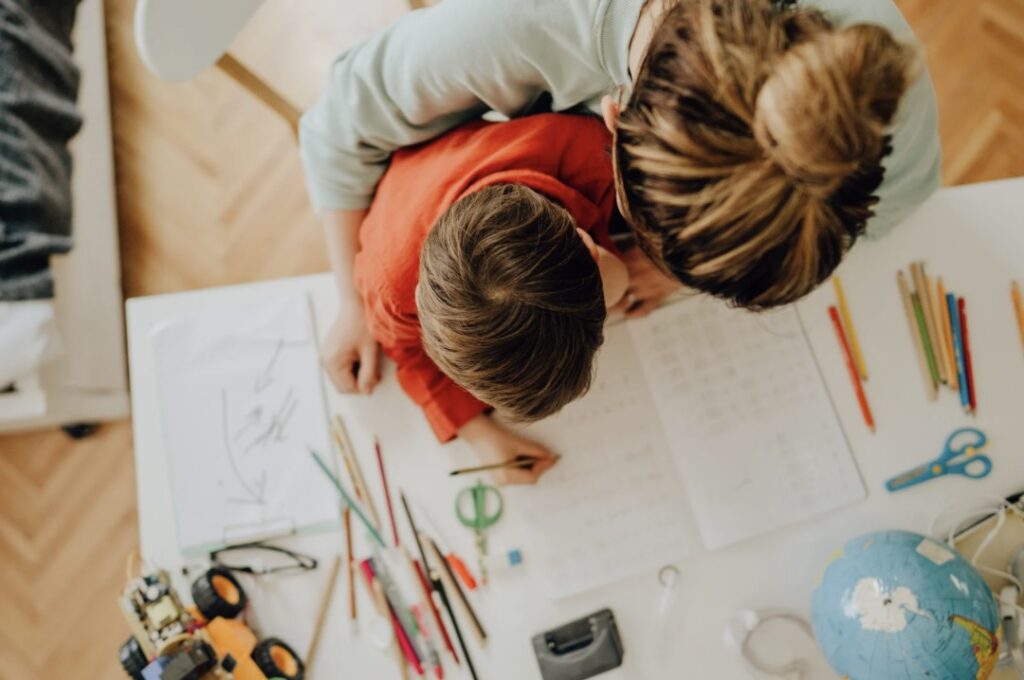Parenting Style Long-Term Effects on Kids’ Mental Health, Behavior, and Substance Use

We all want to raise happy, healthy, emotionally grounded children, but how we parent has everything to do with whether that’s possible. Research shows that parenting style not only affects day-to-day behavior but also shapes long-term outcomes like depression, anxiety, substance abuse, emotional intelligence, and school success. Let’s explore the four primary parenting styles, what […]
Toxic Baby Food Lawsuit Update June 2025: What Parents Need to Know About Heavy Metals in Baby Food

Concern is growing among parents nationwide as new developments unfold in the toxic baby food lawsuits. With over 160 cases now filed and major brands like Gerber and Earth’s Best ordered to face claims in court, families are demanding answers about the presence of heavy metals in the foods they trusted. This post breaks down […]
How Alternative Education Impacts Children’s Mental Health

In today’s world, more and more parents are opting for alternative education methods, such as homeschooling, unschooling, or self-directed learning. While the traditional education system still dominates, these alternative options are gaining traction due to their flexible approach and focus on personalized learning. But how do these non-traditional educational environments affect children’s mental health? The […]
How Traditional Parenting Builds Emotional Intelligence in Toddlers

Why timeless tools like cuddles, play, and emotional coaching are still the most powerful As parents, we’re often met with an overwhelming mix of modern advice, apps, and digital tools promising to make raising toddlers easier. But amid the noise, it’s worth pausing to recognize the power of something far simpler: traditional, hands-on parenting. Things […]
Raising Courageous Teens in a Culture of Compromise

Summer Is Upon Us… With longer days and slower rhythms, summer is the perfect time to pause and be intentional. This year, I created a summer reading challenge for my stepdaughter. She’s turning 13 at the end of the season, stepping into her teenage years, and I wanted to mark this transition with more than […]
How Media Affects Toddler Emotion Regulation

As technology becomes a constant presence in our lives, many parents are asking: How does screen time affect toddlers’ emotional development and self-regulation? A recent study, Tantrums, Toddlers, and Technology: Temperament, Media Emotion Regulation, and Problematic Media Use in Early Childhood, explores how toddlers use media to cope with emotions—and what this might mean for their long-term emotional health. The Growing Role of Media in Toddler Emotion Regulation Let’s face it, when a toddler is having a meltdown, handing them a screen can feel like the only option. And sometimes, that’s okay. This post isn’t about guilt, it’s about awareness. Research shows that while screen time can calm toddlers in the short term, it may also teach them to rely on media as a primary emotional regulation tool. Over time, this can hinder their ability to process and manage emotions without external distractions (Coyne et al., 2021). Why This Matters When we consistently use media to distract or “turn off” big feelings, we may unintentionally send the message that emotions are too overwhelming to handle. While the short-term peace is understandable, over reliance on digital devices for comfort can backfire. You may already be seeing this in older children and teens, increased anxiety, depression, and screen addiction are on the rise. What begins as a harmless distraction can become an emotional crutch. Want to dive deeper into this trend? Read: Is Social Media Helping or Hurting? The Link Between Temperament and Screen Use The study also highlights how a child’s temperament plays a role. Sensitive or high-energy toddlers may be more likely to use screens for comfort. Unfortunately, these are the same kids who often struggle more with emotional regulation over time when media becomes the main coping tool (Coyne et al., 2021). Healthier Alternatives to Media for Emotional Support So what can we do instead? Gentle physical touch like snuggles and hugs Soothing verbal affirmations Consistent routines Nature time or a calming walk One-on-one play and connection These strategies aren’t just comforting, they teach toddlers real-world emotional regulation skills. Key Takeaways for Parents 1. Screen Time Builds Habits Frequent use of media for calming teaches kids to depend on it, and struggle when it’s not available. 2. Temperament Influences Media Use Kids who are emotionally intense may be more drawn to media. Awareness helps us guide them to healthier alternatives. 3. Balance Is Better Than Elimination Media isn’t “bad,” but emotional development thrives on human connection, not just digital distractions. A Gentle Reminder There’s no such thing as a perfect parent. We all do what we need to get through tough moments, and that’s okay. But with increased awareness, we can make small, meaningful changes that help our children grow emotionally resilient. Let’s raise kids who feel their feelings instead of escaping them. Who turn to people, not pixels, for comfort. And who learn from us, day by day, that it’s safe to experience all emotions. Because the goal isn’t to eliminate screen time, it’s to anchor our children in connection. Citation: Coyne, S. M., et al. (2021). Tantrums, toddlers and technology: Temperament, media emotion regulation, and problematic media use in early childhood. Computers in Human Behavior, 120, 106762. https://doi.org/10.1016/j.chb.2021.106762
Is Crawling Really Necessary?

I started wondering if it was “bad” that my 8-month-old wants to walk but couldn’t care less about crawling. She hates tummy time, never liked being on her belly, and now she’s scooting all over the house in her walker and taking steps when I hold her hands. Of course, I did what every mom does […]
Is Co-Sleeping Good For Babies?

Co-sleeping is one of those parenting topics that can spark strong opinions—some swear by it, others avoid it completely. In many parts of the world, it’s totally normal for families to share a sleeping space for years. In the West, though, we tend to approach it with more hesitation. But when you dig into the […]
Is Social Media Helping or Hurting?

Social media was designed to bring us closer, but more and more, it seems to be doing the opposite. With anxiety steadily rising among teens, it’s worth asking: Is social media offering connection, or is it quietly chipping away at it?Lately, I’ve been looking more closely at the connection between social media and adolescent anxiety. A […]
Baby Food Lawsuit Explained

The words “baby food lawsuit” can stir up panic and fear, and with good reason. But let’s take a deep breath. This post is here to inform you about what’s really going on with the 2025 lawsuit, because knowledge is power.
